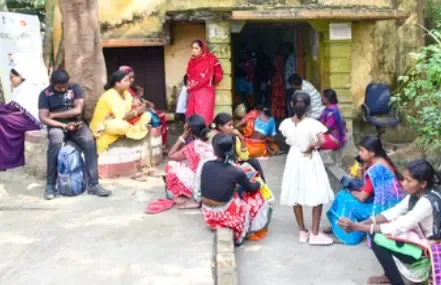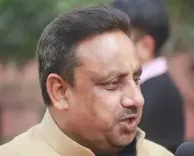Will Hindus Stop Eating Non-Veg Just Because Someone Says So?

Synopsis
Key Takeaways
- Udit Raj criticizes the ban on non-veg during Navratri as unconstitutional.
- Many Hindus continue to consume non-vegetarian food during this festival.
- Animal sacrifice is part of several Hindu traditions.
- Dietary choices should remain personal and not influenced by political mandates.
- India operates under its Constitution, not personal faith interpretations.
New Delhi, Sep 22 (NationPress) Senior Congress leader Udit Raj on Monday condemned the attempts to prohibit the sale of non-vegetarian food and close meat shops during Navratri, branding such measures as “unconstitutional” and asserting that no one has the authority to dictate dietary choices to citizens.
In an interview with IANS, Raj highlighted that numerous Hindus still consume non-veg during Navratri and pointed to various practices within Hinduism that include animal sacrifices.
He referenced Goddess Kali to illustrate that traditions differ among communities.
In particular regions, such as parts of Uttar Pradesh and certain areas in Delhi, there are restrictions or bans on the sale of non-vegetarian food, either via government orders or local municipal regulations.
These limitations are often enacted to honor religious sentiments, as many devotees adhere to a vegetarian or ‘satvik’ diet during the nine-day celebration.
Responding to these actions, Raj characterized them as an “attack on the Constitution” and maintained that dietary choices are personal and should not be governed by political mandates.
“Article 19 of the Constitution guarantees citizens complete freedom. You cannot dictate what anyone should eat. Every person has the right to their choices. If someone opts not to consume meat, they can, but will 100 percent of Hindus cease eating meat merely because someone demands it? Will they stop enjoying chicken or mutton? This is unconstitutional,” he stated.
He further insisted that animal sacrifice remains a component of many Hindu traditions.
“Even among Hindus, such practices exist. Goddess Kali consumed blood, and animal sacrifices are presented during Durga Puja. Numerous deities receive animal sacrifices, and Hindus revere them. These restrictions are purely political and unconstitutional. The same individuals who oppose it publicly will eat non-veg privately, attempting to polarize the issue,” he commented.
Raj reiterated that India operates under the Constitution, not personal interpretations of faith.
“India is a sovereign nation where no one can impose their beliefs on others. The country will function according to the Constitution, not personal statements,” he concluded.









